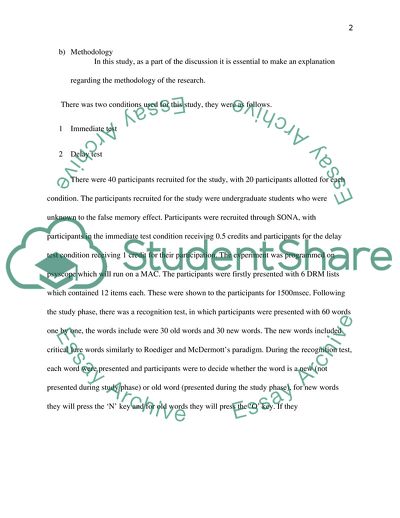Cite this document
(The Effects of Delayed Recall on False Memory Effect Research Paper Example | Topics and Well Written Essays - 2000 words, n.d.)
The Effects of Delayed Recall on False Memory Effect Research Paper Example | Topics and Well Written Essays - 2000 words. https://studentshare.org/psychology/1872972-dissertation-discussion
The Effects of Delayed Recall on False Memory Effect Research Paper Example | Topics and Well Written Essays - 2000 words. https://studentshare.org/psychology/1872972-dissertation-discussion
(The Effects of Delayed Recall on False Memory Effect Research Paper Example | Topics and Well Written Essays - 2000 Words)
The Effects of Delayed Recall on False Memory Effect Research Paper Example | Topics and Well Written Essays - 2000 Words. https://studentshare.org/psychology/1872972-dissertation-discussion.
The Effects of Delayed Recall on False Memory Effect Research Paper Example | Topics and Well Written Essays - 2000 Words. https://studentshare.org/psychology/1872972-dissertation-discussion.
“The Effects of Delayed Recall on False Memory Effect Research Paper Example | Topics and Well Written Essays - 2000 Words”. https://studentshare.org/psychology/1872972-dissertation-discussion.


